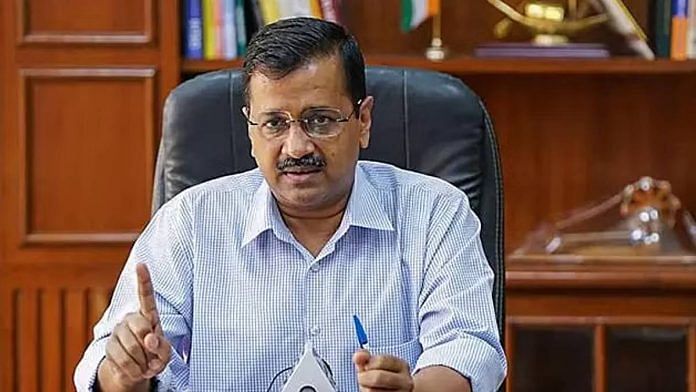New Delhi: The Delhi government told the Supreme Court Monday that it has not been able to allocate enough funds for infrastructure projects, like building rapid transit system corridors, because of the discontinuation of the Goods and Services Tax (GST) compensation, which it said has severely affected the financial resources of the national capital.
In an affidavit filed before the top court, the Delhi government claimed one of the primary reasons why it was facing a scarcity of funds was the stopping of GST compensation payments by the Centre in June last year. It added that had led to a “substantial reduction” in the availability of funds, which has affected the overall development of the national capital.
The Aam Aadmi Party (AAP)-led Delhi government’s affidavit was filed in response to a top court order seeking information on its expenditure on publicity campaigns.
The affidavit informed the court that the government has also increased its expenditure on essential public services, such as education, healthcare and other social welfare programmes. This, it claimed, has made it more challenging for the government to allocate financial resources towards infrastructure development projects.
On the issue of expenditure on advertisements, the Delhi government affidavit clarified that its expenses towards advertisements were “the most reasonable, economical and efficient way of communicating the work of the government”.
On 3 July, a bench led by Justice Sanjay Kishan Kaul had directed the state government to furnish details of money spent by it on advertisements in the past three financial years.
This was done as the government expressed its inability to pay its share for the Regional Rapid Transit System (RRTS) projects for Delhi-Alwar and Delhi-Panipat corridors.
Sanctioned by the central government in 2019, Delhi has to contribute a reported Rs 1,180 crore for the project but has so far released only Rs 865 crore, that too, after the intervention of the court. This amount was reportedly paid from the Environmental Compensation Charge (ECC) funds, after the apex court permitted the Delhi government to utilise the fund.
Expenditure on advertisements
To the Supreme Court’s query on expenditure on advertisements, the Delhi government affidavit disclosed that, in the past three financial years, it has spent about Rs 1,073 crore on these campaigns.
Giving the breakdown, the affidavit claimed an expenditure of over Rs 296 crore was incurred in 2020-21, Rs 579.91 crore in 2021-22 and Rs 196.93 crore last year.
Noting the submission, the apex top court Monday remarked that if the state could allocate Rs 1,100 crore towards advertising, it can surely fund infrastructure projects as well.
Justices Kaul and Sudhanshu Dhulia, who were hearing the RRTS matter, directed the government to pay the overdue amount, around 315 crore, towards the project within two months.
The Delhi government’s affidavit explained its stand on the expenditure on ads and said, “Expenditure on publicity is a necessary component of good governance and effective administration. Funds allocated for these purposes are aimed at maximising the reach and impact of government policies, ultimately benefiting the public at large.”
The affidavit claimed that when compared to advertising expenditures of governments in other “parts of India”, the Delhi government’s advertisement expenses were not “excessive in any manner either in absolute or in terms of percentage”.
The Kejriwal government further explained in the affidavit that the GST revenue, which was supposed to boost the state revenue, has not been released owing to various reasons, including the impact of the Covid-19 pandemic.
During 2022-23 Delhi received Rs 10,000 crore as GST compensation, but during the current financial year, it will receive only Rs 3,892 crore on account of arrears of GST compensation, the affidavit said.
It added that Delhi has appealed to the central government to continue providing compensation for the next five years, until the GST collections achieve the 14 percent annual growth rate. Under GST laws, states were assured of a 14 percent growth in GST revenues every year for the first five years, with any shortfall to be compensated by the Centre. In accordance with the law, the compensation has now been discontinued because the five-year period is over.
(Edited by Richa Mishra)



